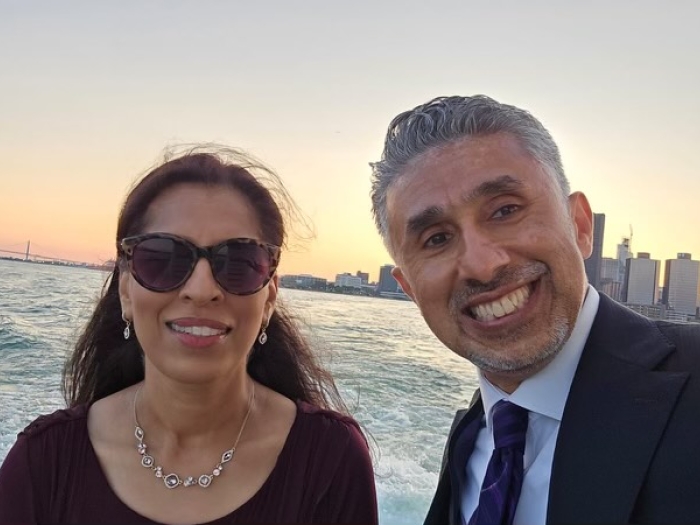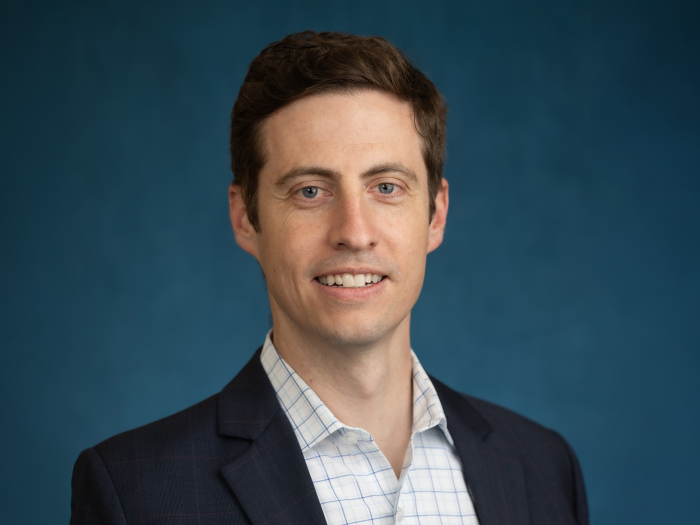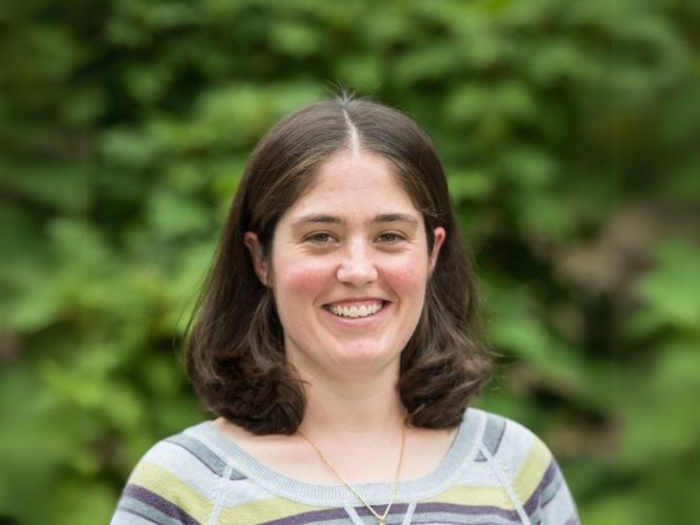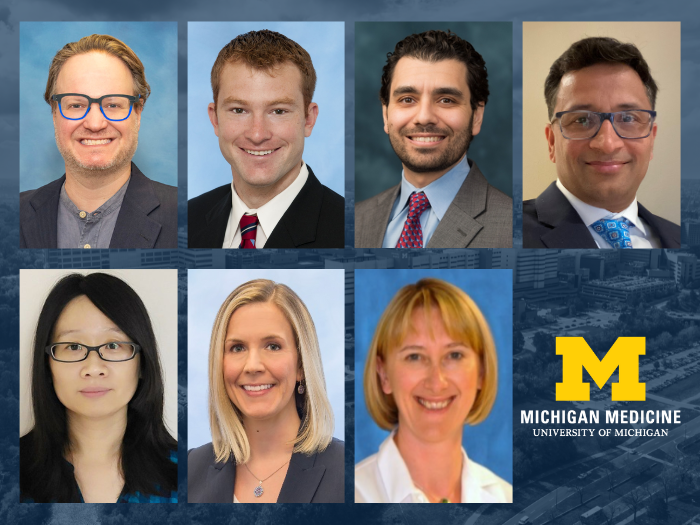
Dr. Kwakye's Michigan Answer: As someone who is passionate about education and global surgery, Michigan Medicine offered me the best opportunity to explore and excel.
Gifty Kwakye, M.D., MPH (she/her) is an assistant professor in the Department of Surgery and has been involved with medical education in many ways since coming to Michigan Medicine. Recently, she's taken on the impactful roles of clerkship director for the Department of Surgery and director of Medical Student Programs in the Office of Health Equity and Inclusion.
Here, Dr. Kwakye shares why she's dedicated to mentorship and education, what drew her to the field of surgery and to Michigan Medicine, her advice on applying to medical school and selecting a specialty, and more.
Follow her on Twitter @Gifty_Kwakye_MD.
What is one thing you wish you would have known while going through the medical school application process?
When applying to medical school, it is tempting to present yourself as the person you think medical schools want to see rather than who you truly are. I was someone who sometimes fell into that trap; I’d catch myself spending days preparing the “perfect” answer to every possible interview question. At my first few interviews, I let my over-preparation prevent me from expressing myself completely. I was more concerned with impressing my interviewers rather than just being myself. With practice, I learned to let my guard down, to have fun and to engage with the person I was talking to. Not only did these interviews become more enjoyable and less stressful, they also allowed me to better communicate my plans as a future physician.
I wish I would have known that I needed to be myself in interviews. Preparation is good, but too much preparation is not. Talk about your passions, how you grew from your failures and what makes you tick. Medical schools want to know who you are.
What is the culture like at Michigan Medicine and how are medical students able to engage in that culture?
Collaborative. There is a deep appreciation that outcomes are better when we have diverse teams working together. That diversity pertains not only to color but to all the beautiful ways diversity shows up in our community. Our medical students come from a range of backgrounds with different experiences and expertise that are valuable.
Be proactive, ask questions, ask to join in and you will always be welcomed.
What aspects of the current Michigan medical school curriculum do you wish you had had access to during your training and why?
The third year, during the Branches, offers an awesome opportunity for students at Michigan Medicine to explore specialties they might be interested in or take a deeper dive into their intended field.
When I went to medical school, we didn’t have a similar set up. The curriculum was instead structured with two years of basic scientific courses. In the third year, students completed the required clinical clerkships and by the end, needed to declare their intended specialty to get applications in by the ERAS timeline. This was extremely challenging if your last rotation was what you decided upon, but you needed additional material to boost your application such as research publications. Also, the timeline did not allow for exploration of subspeciality fields, which forced students to either cross them off their list or take a leap of faith without any prior experience.
What drew you to a career in your specialty and what advice do you have for medical students when it comes to selecting a specialty?
The best advice I ever got in medical school was to approach each class, opportunity and interaction with an open mind. And at the end of the day, to spend some time reflecting on that experience — How did it make me/others feel?; What did I like?; What didn’t I like?; Did it challenge me enough? — and if possible, write my reflections down in a journal.
I came to medical school convinced I wanted to become a cardiac surgeon. Although I eventually went into surgery, I am so glad I listened to the advice to keep an open mind. In the equivalent of the scientific trunk, I kept journal notes on different subject areas that had piqued my interest and those that failed to keep me engaged. In the clinical trunk, I explored each specialty, closely observing the patients, faculty and residents as they managed different disease processes. And I imagined myself in that specialty at different time points of training and practice to see which would fit.
I learned a lot about myself through this process. For one, I learned that my interest in cardiac surgery was completely, selfishly ego driven. However, I also learned that I did enjoy working with my hands and derived great satisfaction from seeing the immediate results. There was also this awesome thing that would happen to me in the operating room — it almost seemed as if time had no dimension to it! I could spend 16 hours in a case, and it would feel like only a few hours had gone by. When I eventually decided to choose surgery, it was done confidently having honestly reviewed each of the other potential suitors with a very open mind.
What appealed to you about coming to Michigan Medicine for a faculty appointment?
I had the opportunity to interview at several amazing academic surgery institutions across the country for a job. Michigan Surgery stood out for several reasons: Their equal commitment to the three core pillars comprising of excellent clinical care, research and education was quite unique.
In addition, the Department of Surgery had developed the ‘Michigan Promise’ program that offered longitudinal investment in six key areas to help accelerate achievement and professional satisfaction for both faculty and residents. One of these key areas was ‘Outreach’ under which the Center for Global Surgery was housed. As someone who is passionate about education and global surgery, Michigan Medicine offered me the best opportunity to explore and excel.
What do you enjoy about mentoring Michigan medical students?
The students who matriculate at Michigan Medicine are truly incredible. They represent a diverse group of learners, with a range of experiences that equips them with such unique perspectives and skillsets. When nurtured in a mutually respectful and supportive mentoring relationship, each student is able to leverage their uniqueness with such meaningful outcomes. It is such a gift to be part of that process and each time, I walk away having learned a little bit more.
What do you like to do outside of work for your wellbeing?
I try to spend as much time with my young daughters as possible. I love seeing the world through their eyes and get reenergized whenever I hear their innocent laughter. That means it's been ages since I watched a movie or read a book for adults, and that I’m sort of an expert on all the best parks in Ann Arbor, in addition to where to find the best French fries.
What advice do you have for prospective students about the process of applying to and attending medical school?
Applying to medical school can be stressful with a lot of checkboxes that need to be completed, which can sometimes deter one from pressing on. Surround yourself with mentors who can help guide you through each step, but equally important, get yourself a cheering squad who know your real ‘why.' Although your mentor(s) will point you in the direction, your cheering squad will run alongside you and get you across the finished line even in the toughest of conditions.

Assistant Dean





